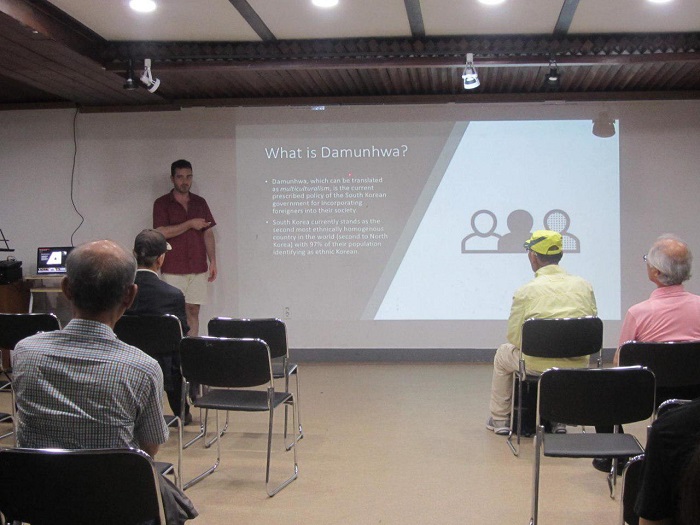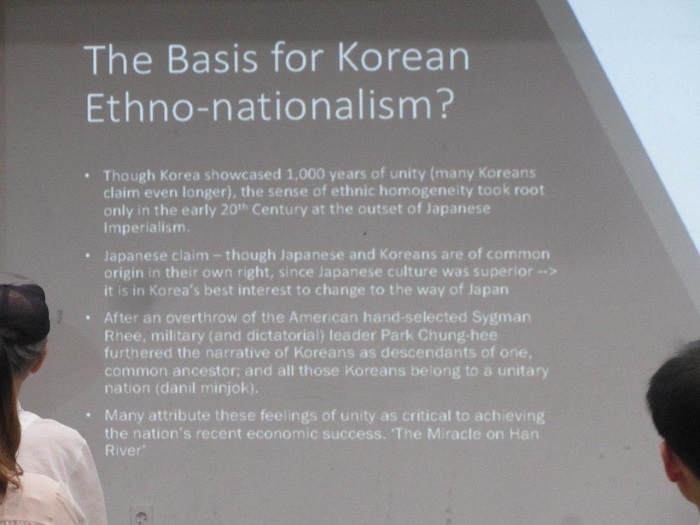GIC Events
[Review] "Origins of Damunhwa: Achieving Multiculturalism in South Korea"
- Name
- GIC
- Date
- 2018-07-07
- Views
- 908 회


▶Date: 30th June
▶Topic: Origins of Damunhwa: Achieving Multiculturalism in South Korea
▶Speaker : Wilson Melbostad
▶Review Writer : Azka Nur Afifah (GIC Talk Volunteer)
Damunhwa can be translated to multiculturalism (Da = all, Munhwa = culture). In terms of multiculturalism in Korea, who is considered to be Korean and who gets to make those decisions in the first place? In this talk, Wilson started by discussing the definition of nation since the type of citizenship system that countries use around the world can help determine how nations define their own nationalism.
In South Korea the concept of nationalism itself came only after Japanese occupation whereby native Koreans were forced to discard their identity. Only after occupation did the native Koreans create the concept that they were possessed the same identity and nationality. Accordingly, they fought back to earn the right of being Korean in the land of Korea, speaking the Korean language. Thus, the concept of nationalism in Korea is based on ethnocentric nationalism in which the nation is defined by a shared heritage: common ethnicity, common language, and common culture.
The citizenship system in Korea is based on the nationality of the parents (jus sanguinis) thus this system favors a Korean-American who doesn’t speak a word in Korean over a foreigner who is fluent in Korean culture and language. On the other hand, the number of international marriages saw a ten-fold increase suddenly in 2006. This surge came from the demographic change and urbanization that lead to the rural bachelor issue that in turn led to the migrant brides phenomena. Many of those women who married into a Korean family are seen merely as an instrument to help ensure future workforce and often face severe discrimination.
The label of 'Damunhwa' is given to a non-Korean who marries a Korean. The government's attempt to help these brides by giving language and cooking class in 'damunhwa' centers is still about assimilating them into Korean culture rather than accepting the cultural identity of their home country. There is no instant solution to help South Korea achieve multiculturalism. One of the solutions is to educate young Koreans by inviting foreign professor in hope to introduce other perspectives of thinking. This hopefully will help people to embrace differences not by forcefully setting up regulation but by letting them do so through their own consciousness. The GIC Talk is indeed one of such programs that facilitates exchange of perspectives by inviting foreign speakers who have the expertise in each respective field.
